
24 minutes of … Whoa. … about Providence #1 by Alan Moore and Jacen Burrows.
Posted by Jesse Willis

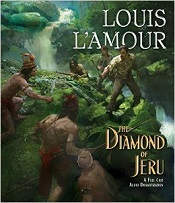 The Diamond of Jeru
The Diamond of Jeru
By Louis L’Amour; Performed by a Full Cast
3 hours – [AUDIO DRAMA]
Publisher: Random House Audio
Themes: / Audio Drama / Adventure / Magic / Fantasy / Pulp /
There were times Mike Kardec thought he could feel the magic of this place, a vague sense that just beyond his perception vast but subtle forces were at work… there was power out there, a great organic engine of death and rebirth.
Louis L’Amour (1908 – 1988) is best known for his Western novels, but for a long time I knew him only for a couple of his non-westerns. Last of the Breed (1986) was about a Native American pilot downed in Russia during the Cold War, and The Walking Drum (1984), a historical novel set in the 12th century. Later I read The Lonesome Gods (1983), which, though there were gunfights and horses, I assumed was still one of L’Amour’s atypical works. I enjoyed all of the above, which is why I greeted The Diamond of Jeru with a smile. L’Amour is a fine storyteller.
The Diamond of Jeru is also not a Western. It’s set in Borneo in 1955, where our hero Mike Kardec (played by Joel Bryant) finds himself after the Korean War. He is hired by a Helen and John Lacklan (Traci Dinwiddlie and Time Winters) to guide them deep into the island to find a diamond. There’s a touch of magic in the story, so I’d call it a fantasy adventure.
It’s presented as a “Dramatized Audio”, which I would describe as a rich audio drama with heavy narration. Joe Morton is the narrator, which is terrific because I can’t hear enough of that guy. He was perfect in some of Simon and Schuster’s Star Trek audio titles, and is excellent again here. In fact, all of the actors in this are top notch. This cast is among the highest quality group of actors I’ve ever heard doing audio drama.
On the video page of The Diamond of Jeru Audio Project site, Writer/Director Beau L’Amour and Producer/Editor Paul O’Dell discuss the making of the sound effects. Their methods sound excellent in the final production. I haven’t heard any other titles by this skilled team, but I’d love to hear one in which they rely more on the superb sound than on narration to establish setting and action. The sound had a very deep quality. Nothing out of place here.
The story retained much of the pulp quality of the original story, which was welcome. The website has an audio sample as well as a history of the story, which was written sometime in the late 1940’s or early 1950’s by Louis L’Amour, then revised and expanded to novella length by Beau L’Amour. The original, unedited story can be found |HERE|.
Posted by Scott D. Danielson

 Alive (Generations Trilogy *1)
Alive (Generations Trilogy *1)
By Scott Sigler; Narrated by Emma Galvin
Publisher: Empty Set Entertainment
Publication Date: 14 July 2015
[UNABRIDGED] – 9 hours, 44 minutes
Themes: / young adult / survival / horror /
Publisher summary:
A teenage girl awakens to find herself trapped in a coffin. She has no idea who she is, where she is, or how she got there. Fighting her way free brings little relief – she discovers only a room lined with caskets and a handful of equally mystified survivors. Beyond their room lies a corridor filled with bones and dust but no people and no answers.
She knows only one thing about herself – her name, M. Savage, which was engraved on the foot of her coffin. She finds herself in charge. She is not the biggest among them or the boldest, but for some reason the others trust her. Now, if they’re to have any chance, she must get them to trust one another.
Whatever the truth is, she is determined to find it and confront it. If she has to lead, she will make sure they survive. Maybe there’s a way out, a rational explanation, and a fighting chance against the dangers to come. Or maybe a reality they cannot comprehend lies just beyond the next turn.
“A stabbing pain jolts me awake.” So begins the story of a girl on what is an exciting day in her young life; her twelfth birthday. Maybe the pain was just from a dream, she thinks. But when she realizes she is surrounded by “total darkness” and is unable to move thanks to metal bars, she is forced to make a decision. It will be the first of many choices to be made.
Scott Sigler’s Alive is all about momentum and what I like to call structured discovery. With that in mind, I am going to do my best to keep things as spoiler free as possible. Our main protagonist has virtually a blank slate and nothing to help her as she begins her journey. She is thrust into an unfamiliar situation and doesn’t even know her name. Answers will not come easy for her or anyone else she meets on her quest. The unknown is everywhere. The only way is forward. We (as listeners) are inside her head and learn things as she learns them. For the impatient, this could be frustrating, a tad jarring, and bewildering since the story is told not only in first person but in the present tense as well . If you stick with M. (as she comes to be called), you will be rewarded in time. Be prepared for a slow burn which calls to mind British films as far as the pacing is concerned. This isn’t a bad thing since we are normally conditioned to have everything presented all in a rush with no time to process. It is refreshing to have things unfold naturally. You will feel like you are thrown into the deep end but that is okay because so is M. You are not alone.
This being the audio version of the 368 page novel, the narrator is very important; this can’t be over stated. He or she has to convey all the emotions of not only M. but anyone else, help pull us into Sigler’s world, and adapt to the fluidity of the story. Luckily, Emma Galvin is more than capable of handling the various subtleties. Words change meaning, (the names of certain objects for example), as does the physical and emotional landscape. This is Scott Sigler at his best. The perilous puzzle is well constructed, contains a myriad of vivid descriptions, and keeps you guessing throughout. If this were done as a film, first person point of view would be highly appropriate for the presentation.
If William Golding’s Lord of the Flies comes to mind while you are listening as it did for me, the comparison aptly fits. Questions are explored in depth. What is a leader? What makes a good one verses a bad one? Are we destined to repeat the mistakes of those that who have gone before or can we as a society break the cycle? How and where does a religious/belief system fit into the equation? Do we follow something because of blind faith or because we connect the dots? How do we handle fear? What is the right way to address conflict? Should we hold ourselves accountable because of the choices we have made or should we chalk things up to mere accidental outcomes? When does the life of an individual outweigh the lives of the entire group?
This story doesn’t shy away from harsh realities. Long-time Scott Sigler fans may be asking themselves, “Is there gore?” The answer is a resounding, ‘Yes.” However, this isn’t bloodshed and carnage purely for the sake of it. Everything serves a purpose even if we don’t understand it’s function when we come into contact with it at first. In the same token, things are presented with a deft sensativity to the target YA audience. There are many, many lessons to be learned. There’s a lot for teachers to work with if this book were to be used in a school environment.
As far as the science in this book, I can’t say much without revealing plot points. I will say, however, that technology of all sorts is represented nicely. Scott Sigler’s attention to detail, (another one of his trademarks), is present but skillfully subdued because of the limited knowledge of the main character. Observations are kept simplistic unless finer details are absolutely necessary.
If you are looking for a complex story that has mysteries within mysteries to be solved and a well-rounded cast of characters including a strong (yet vulnerable) female protagonist, this book is definitely for you. While the slow burn approach and the first person, present tense narrative may irk some listeners, the payoffs and the overall journey getting to those rewards make it all worthwhile. This being the first book in a trilogy, there is a true sense of discovery as the scope of things expands and the stakes are raised. Loose ends are tied up to a degree by the novel’s conclusion but the dust is far from settled. It is a claustrophobic roller coaster ride with many jolts, bumps, and twists along the way. Alive by Scott Sigler gets five out of five coffins.
Posted by Allen Sale.

 The SFFaudio Podcast #326 – Jesse, Mr Jim Moon, and Bryan Alexander talk about The Lost World by Sir Arthur Conan Doyle
The SFFaudio Podcast #326 – Jesse, Mr Jim Moon, and Bryan Alexander talk about The Lost World by Sir Arthur Conan Doyle
Talked about on today’s show:
The Lost World is a great read, Tom Barling illustrations of The Lost World, the Ladybird editions, King Kong, The Valley Of Gwangi, full of jokes, slapstick, witty banter, an awesome character, a role model for us all, Professor Challenger is Brian Blessed, every audio drama, every movie, Edgar Rice Burroughs, The Land That Time Forgot, a sideways angle Gilles deLEuze’s A Thousand Plateaus, Professor Challenger made the earth scream, “his simian disposition”, When The World Screamed, The Poison Belt, The Land Of Mist, The Disintegration Machine, an end of the world story, you could do it as a stage play with a single set, the humiliation chair, Challenger and his wife embracing, The Strand Magazine (U.K. vs. American editions), they knew what gold they’d found, competing with Argosy and the colourful pulps, Herland by Charlotte Perkins Gilman, it’s the same story, Lost Horizon, the 1998 quickie movie of The Lost World, other adaptations, Summerlee as a woman, the 2011 2-part BBC Radio drama adaptation, Diana Summerlee, a male book, Dracula, assembling a team of adventurers, the sacrificial American, a mad Texan, Maple White Land, From The Earth To The Moon by Jules Verne, both books have a major role played by a noble, Lord John Roxton, he rocks, the 3 part BBC Radio drama (available as a 3 CD set), the wise sage, comic relief, a double act, a towering bastard, a modern day Munchhausen, the frame story, an evolutionary biology exemplar, the central lake, a vaginal symbol, a 1912 book, becoming soft, the Boy Scouts, a moral equivalent to war, a testosterone shot, it’s a cartoon, Roxton’s test, Boys adventure, a genocide, slavery, the 1960 adaptation, the 2001 adaptation, a romance, ahistorical women, the 1960 adaptation, the prince is turned into a princess, every Edgar Rice Burroughs book makes this change, otherwise we couldn’t go back to our women, ape city from Planet Of The Apes, the Rod Serling scripted movie, one of the great scenes of history, The Red Queen: Sex and the Evolution of Human Nature, it’s not about gender roles, it’s about racism, these Indians are so degraded their barely above the average Londoner, stupid and wise, every magazine story in the 19teens is about race and going soft and miscegenation, their good negro, the description of rage, the red mist, getting savage, Heart Of Darkness, the white feather, spiritualism, anticipation WWI, Roxton has a ton of rocks (diamonds), evolutionary psychology, Hungerford, proving the ability to care for a large number of children, a classic case (undermined at the end), Gladis Potts, an amazing amount of stuff happens in this book, good scientific analysis, poor Malone, there’s reason to fear reporters of this era, a sophisticated view of the press, that’s always been the case, news was a big business in 1912, wire services, 15 years earlier (in Dracula), The New York Times, TV journalism, pointing at pictures and saying “oh dear!”, Charlie Brooker, Newswipe or Screenwipe, a high information culture, 5 posts a day, 3 editions a day, The War Of The Worlds, Now It Can Be Told by Philip Gibbs, the hoax aspect of the book, Doyle’s problem with science, quasi-hoax in the original illustrations, the way Sherlock Holmes stories are told, the Maple White illustrations, playing with the nature of the evidence, preserving an information and financial monopoly, meticulous description, the British tradition of the novel, a very realistic novel, protestant novel, is Robinson Crusoe real?, The Castle Of Otranto by Horace Walpole, Edgar Allan Poe, The Balloon Hoax, meta-textual questions, assorted deranged individuals, the imitators of H.P. Lovecraft, Dracula is a found footage novel, future proofing the story, At The Mountains Of Madness, Ruritanian romance, Mount Roraima, a partial pterodactyl wing, the trump card, pterodactyl wing, founding a private museum, the Evolution Museum in Kentucky, a fairy museum, The Structure Of Scientific Revolutions, science studies, the Royal Society, “we’ve discovered everything”, “we’re all done inventing”, the aether of the vacuum, “extraordinary claims requires extraordinary evidence”, an antecedent for Professor Quatermass, Bryan’s beard is intimidating, Bryan with beard and axe, The Horror Of The Heights, star jelly, Eadweard Muybridge, Sherlock Holmes as a the great Asperger’s hero, Neal Stephenson’s new novel is offensively hard SF, Larry Niven, you don’t have to understand science to do it, Jurassic Park, the movie, Steven Spielberg, the betraying geek, what saves them, kids and dinosaurs, American conservative standard American movie, Schindler’s List, A.I., the Americans are very repressed,
“I have wrought my simple plan
If I give one hour of joy
To the boy who’s half a man,
Or the man who’s half a boy.”
C.S. Lewis, Gomez the traitor, Lord John Roxton’s private war, the flail of the lord, half-breed slavers, hewers of word and drawers of water, this is totally colonialism, Rhodesia, Mungo Park, Water Music by T. Coraghessan Boyle, the 1925 silent film version, Willis O’Brien, the Brontosaurus, the 1960 version, the sound effects, the dinosaurs sound like tie fighters, The 39 Steps, show me the lizards, Jules Verne’s Journey To The Center Of The Earth, 1860s paleontology, Ray Bradbury: ‘dinosaurs are awesome’, Ray Harryhausen, creationism, the poor iguanodon, dinosaurs are inherently partly mythical, the dinosaurs are all female, parthenogenesis, Eaters Of The Dead by Michael Crichton, The Andromeda Strain, The First Great Train Robbery, Sean Connery and Donald Sutherland, Beowulf vs. neanderthals, Ahmad ibn Fadlan, Congo, intelligent apes, Gorilla Grodd, DC Comics, Planetary, Lord Greystoke, loving riffs on SF classics, Doc Savage, The Shadow, too much incident (for a modern book), value for money, Speed, the whole bus gimmick, Interstellar, shallow water planet, weird ice planet, the O’Neil colony, ideas are of primacy, a humorous bombastic semi-psychotic reading, Bob Neufeld’s narration for LibriVox, John Rhys Davies, the 2001 TV adaptation with Matthew Rhys as Malone, The Americans, the science, The Andromeda Strain‘s scientific density, Andy Weir’s The Martian: “we’re going to science the shit out of this”, five-dimensional beings, the Nolan brothers, Elysium, in the geography of the public mind, Conan Doyle’s passions, “I’m obsessed with fairies now!”, FairyTale: A True Story, science runs the risk of P.T. Barnum, we need a Conan Doyle and a Houdini.
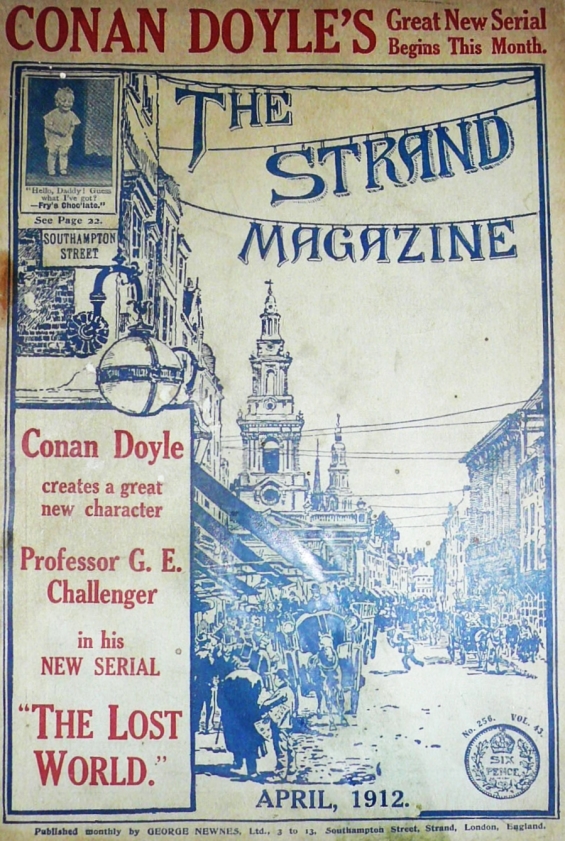
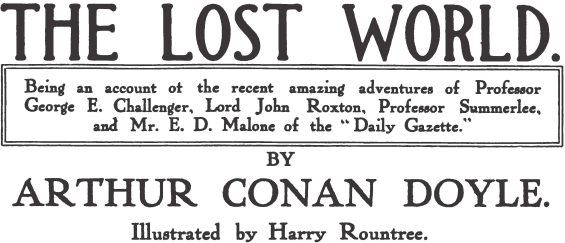
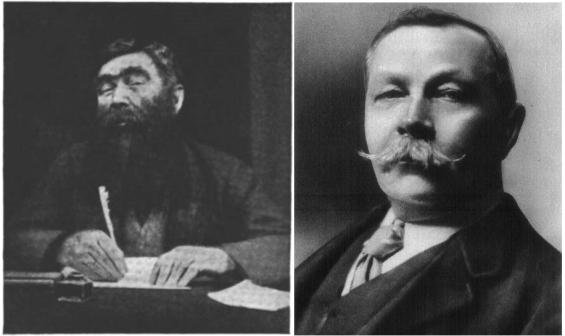
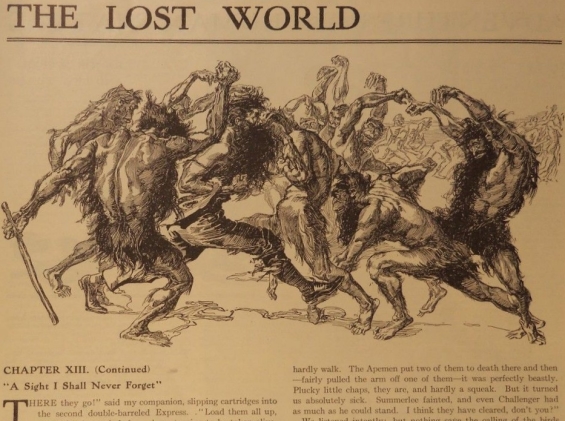
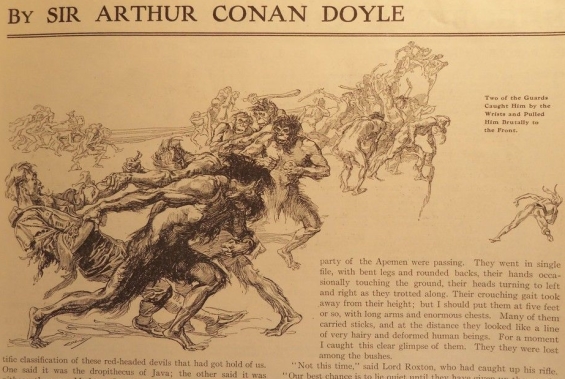
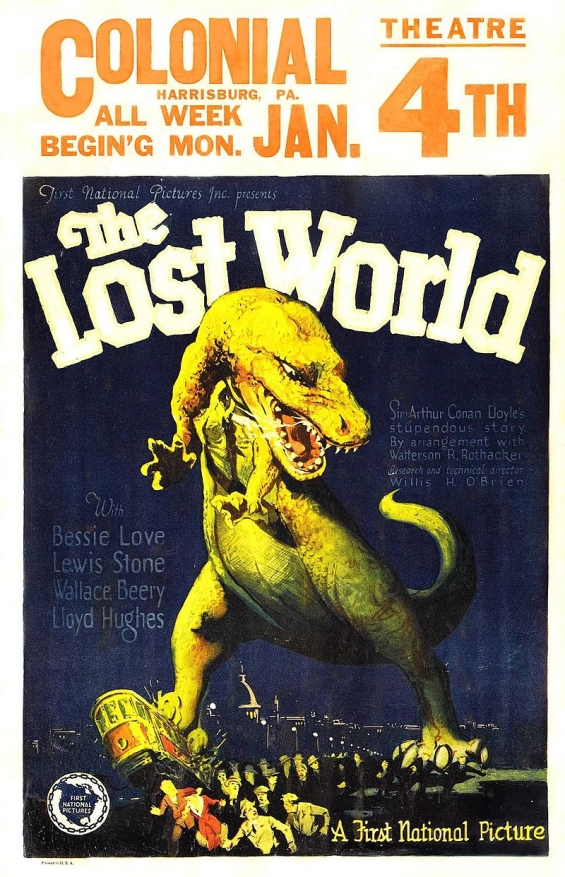
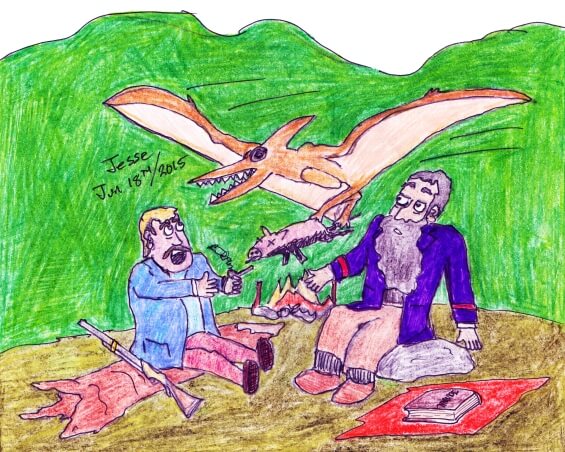
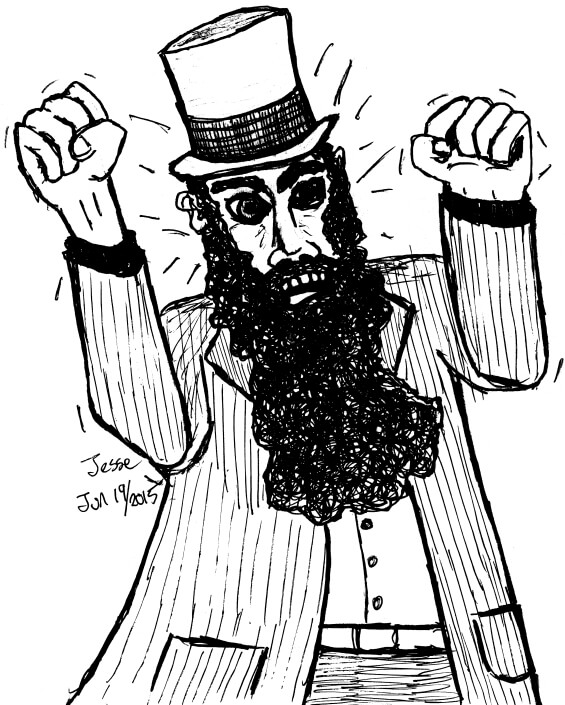
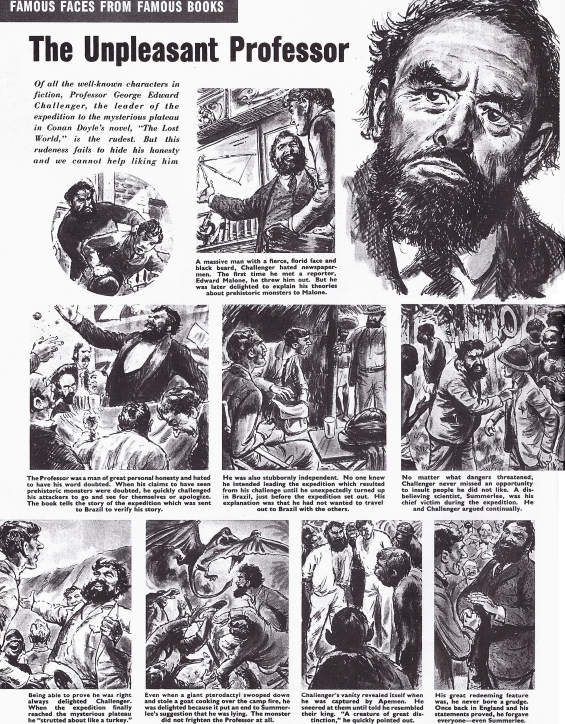
Posted by Jesse Willis

 Puttering About in a Strange Land
Puttering About in a Strange Land
By Philip K. Dick; Performed by Luke Daniels, Kate Rudd, Amy McFadden
Publisher: Brilliance Audio
[UNABRIDGED] – 11 hours
Themes: / marriage / boarding school / literary / infidelity /
Publisher summary:
When Roger and Virginia Lindhal enroll their son Gregg in Mrs. Alt’s Los Padres Valley School in the mountains of Southern California, their marriage is already in deep trouble. Then the Lindhals meet Chic and Liz Bonner, whose two sons also board at Mrs. Alt’s school. The meeting is a catalyst for a complicated series of emotions and traumas, set against the backdrop of suburban Los Angeles in the early fifties. The buildup of emotional intensity and the finely observed characterizations are hallmarks of Philip K. Dick’s work.This is a realistic novel filled with details of everyday life and skillfully told from three points of view. It is powerful, eloquent, and gripping.
Puttering About in a Small Land (written 1957 but first published in 1985) feels very different from Philip K Dick’s usual stuff. It’s a dark and funny slow-burn set in 1950s Southern California, but there are no simulacra, no time slips, and no telepaths, and the only artificial reality is the one built out of society’s expectations of suburban married life.
It also seems unusually sensitive for PKD – not in a corny or sentimental way but just finely tuned into human relationships. He captures the subtle and imperfect communications of a dysfunctional marriage where two people are pretending to work together but are really pushing and pulling below the surface, wanting different things and resenting each other for it.
“I’ll be back pretty soon,” he said. From his eyes shone the leisurely, confident look; it was the sly quality that always annoyed her.
“I thought maybe we could talk,” she said.
He stood at the door, his hands in his pockets, his head tilted on one side. And he waited, showing his endurance, not arguing with her, simply standing. Like an animal, she thought. An inert, unspeaking, determined thing, remembering that it can get what it wants if it just waits.
“I’ll see you,” he said, opening the door to the hall.
“All right,” she said.
The story is told in three alternating points of view: Roger, his wife Virginia, and the “other woman” Liz. All three are trapped, one way or another, in self-made realities they don’t enjoy.
Some readers complain that PKD writes unflattering female characters, and as usual these ones aren’t much to admire: Virginia is gossipy and judgmental, her mother is a controlling nag (who often corners Roger and has some of the funniest scenes in the book), and Liz Bonner is so naïve and childlike she verges on the idiotic.
“She’s sort of a—” Mrs Alt searched for the word. “I don’t want to say lunatic. That isn’t it. She’s sort of an idiot with a touch of mysticism.”
But even so, Virginia has her strengths, and Liz Bonner is lovely in a quirky way. Her flaws and naïve unpredictability are exactly what free her from society’s expectations, and are what attract Roger. Despite the deceit and infidelity, their love story is somehow still beautiful.
And to be fair, PKD also writes pretty unflattering men. For example, Roger not only cheats on his wife, he also abandoned his previous wife and daughter and seems to be a compulsive liar. He’s a bristly, bad-tempered, and indifferent to his wife’s gestures of love and compromise. All he really cares about his TV retail-and-repair business, which is where the book title comes from: he’s a little king “puttering about in a small land.”
The waning of a marriage and infidelity appear in a lot of PKD’s stories, but in this one they really drive this plot. Normally I wouldn’t try to detect an author’s own life in his fiction, but since PKD has openly admitted he weaves autobiographical details into all his stories, it seems safe to see something of him in Roger.
His essay “How to Build a Universe That Doesn’t Fall Apart Two Days Later” might give some more clues to his approach to fiction set in the real world. Just because the characters’ universe is based in reality doesn’t mean PKD won’t try to disintegrate it.
“I like to build universes which do fall apart. I like to see them come unglued, and I like to see how the characters in the novels cope with this problem. I have a secret love of chaos. There should be more of it. Do not believe—and I am dead serious when I say this—do not assume that order and stability are always good, in a society or in a universe. … Unless we can psychologically accommodate change, we ourselves begin to die, inwardly. What I am saying is that objects, customs, habits, and ways of life must perish so that the authentic human being can live.”
I listened to Puttering About in a Small Land on audio and read the print version too. The audiobook was read by Amy McFadden, Kate Rudd, and Luke Daniels, one for each of the main characters. All three were great, although using three narrators didn’t work so well for me since the story is in third-person. Hearing the same characters read three slightly different ways gave the audiobook a patchwork feel and was a bit jarring and distracting sometimes.
I’d recommend Puttering About in a Small Land for PKD fans but not so much as an entry to his works. For anyone who knows his style, it’s very cool to see a more subtle side of him and to see how beautifully he can write about human relationships in the artificial universe we call reality. Definitely worth the read.
Posted by Marissa van Uden

 Sea of Silver Light (Otherland Book #4)
Sea of Silver Light (Otherland Book #4)
By Tad Williams; Read by George Newbern
Publisher: Penguin Audio
Publication Date: 17 March 2015
[UNABRIDGED] – 37 hrs, 32 mins
Themes: / science fiction / cyberpunk / virtual reality / virtual worlds / serial killer / Otherland /
Publisher summary:
A group of adventurers searching for a cure for comatose children find themselves trapped in a sequence of virtual worlds, the only opponents of a conspiracy of the rich to live forever in a dream. Now, they are forced to make an uneasy alliance with their only surviving former enemy against his treacherous sidekick Johnny Wulgaru, a serial killer with a chance to play God forever. Few science fiction sagas have achieved the level of critical acclaim-and best-selling popularity-as Tad Williams’s Otherland novels. A brilliant blend of science fiction, fantasy, and techno thriller, it is a rich, multilayered epic of future possibilities.
The finale to the Otherland series, Sea of Silver Light wraps up the multitude of story lines that began in City of Golden Shadow. While the book dragged in places, and some may find that the book (and the series, especially in the middle books) wanders a bit too much, it is hard not to appreciate Tad Williams’ amazingly prescient series, especially if you’re a fan of a) the internet and b) classic literature. It’s probably safe to say that the wandering will not be for everybody, but for those that enjoy the mystery and the references to other works, the series could be a lot of fun.
A series written in the mid-late 90’s, the books cover amazing breadth of topics with a wide cast of characters in this world and in a parallel online world. What started as a cyberpunk story quickly unfolded into a much larger world with many players with significantly different motivations–on all sides of the story. With unlikely/atypical heroes (a South African woman, an African “bushman”, a blind woman, two teenagers, a mom, and a guy who doesn’t know his own past, not to mention a 5 or 6-year old girl, an ancient man…the cast is huge!) and a sprawling world, it’s easy to see why some people are overwhelmed. The more intriguing part, though, is trying to piece together the entire story, trying to figure out who’s involved in the world and for what purpose…and what the online world really is. I will admit that when the world was pieced together, it seemed pretty out there…but I was so engrossed that I didn’t really mind. The only part I really did mind was the end; the book felt maybe a little too neat, and a little too drawn out at the end. That said, it does leave an opening for Williams to return to the world (and looking on Goodreads, it seems as if he may have done just that with a short story in Legends II.
It’s hard to describe the book and what happened in the series without venturing into spoiler territory. Basically, Renie, a young South African woman who is a sort of professor or teacher of computer engineering-type classes at a local university, finds one day that her brother is in a coma of sorts, a result of playing an online game. Games in the future world that Williams created are played online in a virtual reality simulation type schema, where users have different levels of gear that immerse them (fully or to varying degrees) into a virtual world. Some users go so far as to get neural cannulas, so that they can “jack in” and have the VR system provide a direct link to their brain, become fully immersed. Renie, wanting to try to find out more about how her brother came to be in the coma, went online to try to learn what she could of what he got into. Unsurprisingly, she found herself sucked into and literally stuck in a virtual world, unable to disconnect (sort of like Sword Art Online). While there, she meets others who have family members with the same affliction as her brother, and still others who have been recruited by an unknown agent to help Renie and those who are trying to help their children/family members. In parallel, there is the story of the Grail Brotherhood, a private group of the world’s most powerful and wealthiest elite, who wish to achieve immortality, and invest heavily in a system to do so. In a third story line, there is additional intrigue about a psychopath who calls himself “Dread” and seems to seek out ways to torture and kill others, online and in reality. His story ends up weaving and in some ways connecting the Grail Brotherhood and those of the people trying to help the children. Throughout, there are a multitude of worlds created by various users of the online system, many with literary references (such as The Wonderful Wizard of Oz and The War of the Worlds) or other evolving schema (such as a virtual rainforest that actually begins to evolve in the simulation world, similar to how it might have on earth). Williams uses cyberpunk, the idea of virtual/simulation worlds, and some more fantastical elements (some characters have special abilities, particularly abnormal/special mental powers) to weave a tale that leaves the reader picking up puzzle pieces and slowly piecing things together, just as the heroes do in the story.
I’m most amazed at how prescient Williams was. The book was written in the mid-90’s, yet there are references to things in the world today, innovations that were barest ideas of science fiction in the 90’s. The first and most obvious observation is that the VR world, while more immersive than anything we really have today, is very much akin to the internet of today, with people spending entire lives and making entire livelihoods on the internet. People use tablet-like devices to connect to the networks, to make calls, to shop, to go into their simulation worlds–much like an iPad or other tablet of today. People watch movies on the internet, so-called “Net Flicks” (I really wonder if that’s how Netflix’s name came to be), and an automated robotic floor-sweeping robot (Roomba, anyone) makes an appearance or two. Kids have “storybook sunglasses” which sound a bit like more immersive (and frankly more fun) versions of Google Glass. Just today, I read an article on Slashdot about body hacking through the vagal nerve, a topic that’s actually brought up in the book (as a therapy that is abused, oddly enough). There are other examples, which reading in 2015, are fun nuggets to pick up along the way. It’s crazy how forward-thinking this book was, how much it got “right” even for 2015 (I think the book is supposed to take place closer to 2050).
I liked this book and really enjoyed the series. I think that listening was a fantastic way to experience the book, to be able to lay back and shut my eyes and become immersed in the book as the characters are immersed in their world. The narration was (as I’ve said in my other reviews) great, if a little slow. But that meant that I could speed the book up slightly in the playback, cutting down some of the listening time.
The book (and series) may not be for everyone. I think it’s fair to criticize this book for going on a little “too long” or for being a little “too neat,” and it’s equally fair to think that Book 1 started slow or that books 2 and 3 wandered a bit (they absolutely were “middle books” in a series, which not everybody enjoys). But I still really liked the series. I look forward to reading it again in the future, maybe in a few years, to see how much I can pick up in advance, knowing as I do now, how the book ends.
Posted by terpkristin.